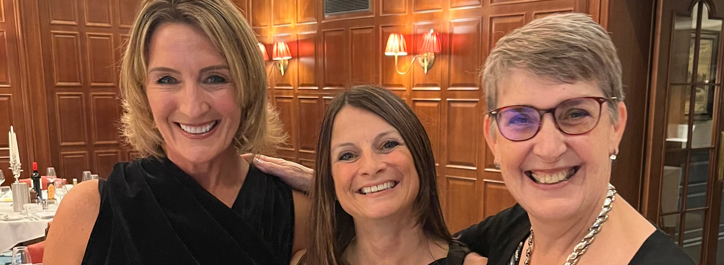Taming your advice monster – news from the HR Development Programme
Our HR Development Programme, which we run with law firm Birketts, brings HR professionals from across the eastern region together to learn from each other, hear from great speakers and build their networks. We run sessions in both Ipswich and Chelmsford. Here’s what happened in Ipswich.
‘How to tame your advice monster’
Catherine shared a TED talk with us from Michael Bungay Stanier (a leading coaching expert) called ‘How to tame your advice monster’. The talk began with a warning on ‘fake active listening’ (when you pretend to listen to someone’s problems), and how your advice monster – the voice in your head that we all have – will always have some words of wisdom, despite not knowing all the details. Giving advice has become our default response.
Why is this a problem?
Despite our best efforts, often the advice we give isn’t nearly as good as we think it is. That could be because of cognitive bias (when our brains make mistakes in thinking or judgment, causing us to make decisions that aren’t logical or based on facts). Or it might be because we haven’t actually got to the root of the reason why the person needs advice in the first place.
Michael went on to say that when we’re on the receiving end of advice, we constantly get the message that ‘you can’t figure this out yourself’. And that takes away our autonomy and sense of confidence. On the flipside, if we’re the one giving advice, we might be crushed under the overwhelming weight of everyone’s responsibilities, and having to have all the answers.
The problem is that our advice monsters want to ‘add value’ to all conversations when, in fact, they’re actually doing the opposite. And when our advice monster is in control, we’re saying that we’re better than the other person who wants advice – they’re not good enough. This diminishes us as well, making us lose connection to our empathy, compassion and sense of vulnerability.
Three questions to defeat the advice monster
So how do you tame the beast? Start by replacing the advice-giving habit with a new one by staying curious a little bit longer. The best way to do this is with three questions:
- ‘What’s the real challenge here for you?’ This helps us focus on the real issues and solve the right problem
- ‘And what else?’ This will help us get more insight into the first answer
- ‘What do you want?’ When we’re clear on this, we can use it as a foundation for action.
These questions are about giving up control and helping people find their own answers, rather than trying to rescue them with our advice.
Back in the room
After watching the talk, Catherine picked up on a few points made by the speaker. First, this doesn’t mean we should stop giving advice and coaching – it’s about making sure we listen (to the person, not our advice monster) before we try to solve the problem.
We should also remember that silence isn’t a bad thing. It gives people time to talk and shows we’re actually listening. Sometimes we should try not to speak – in fact, it can be the most thoughtful thing we can do (even if it feels awkward sometimes). We must allow our peers to think for themselves.
Catherine also talked about how it’s important to encourage people to ask the right questions, and be consistent and open. We should focus on upskilling in coaching as well – we all need soft skills, and practise makes perfect.
Putting it all into action
Next Catherine paired us up to test our listening skills and put what we’d just learned into practice. This was a particularly interesting exercise as there was a real mix of HR experience in the room.
Catherine finished the session by telling us about her HR career and qualifications, including how she became HR director for a social housing organisation, and the work she now does for Birketts.
Feeling inspired?
We still have a few spaces left on our Chelmsford programme – find out more. We also donate the fees from this programme to Home-Start, a charity helping helping families with young children through challenging times. So by signing up you’ll not only be adding to your HR skills – you’ll also be helping the local community.



